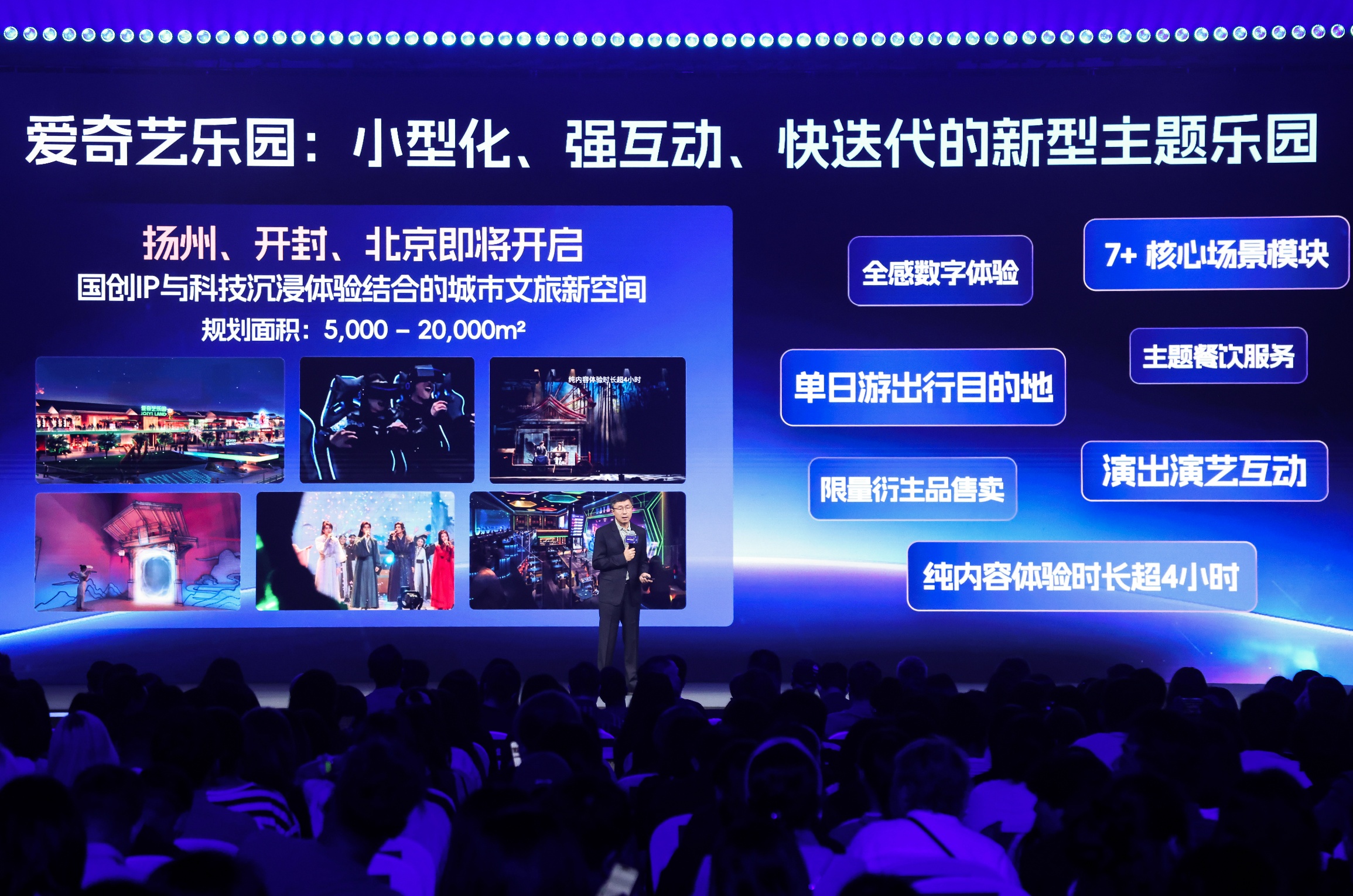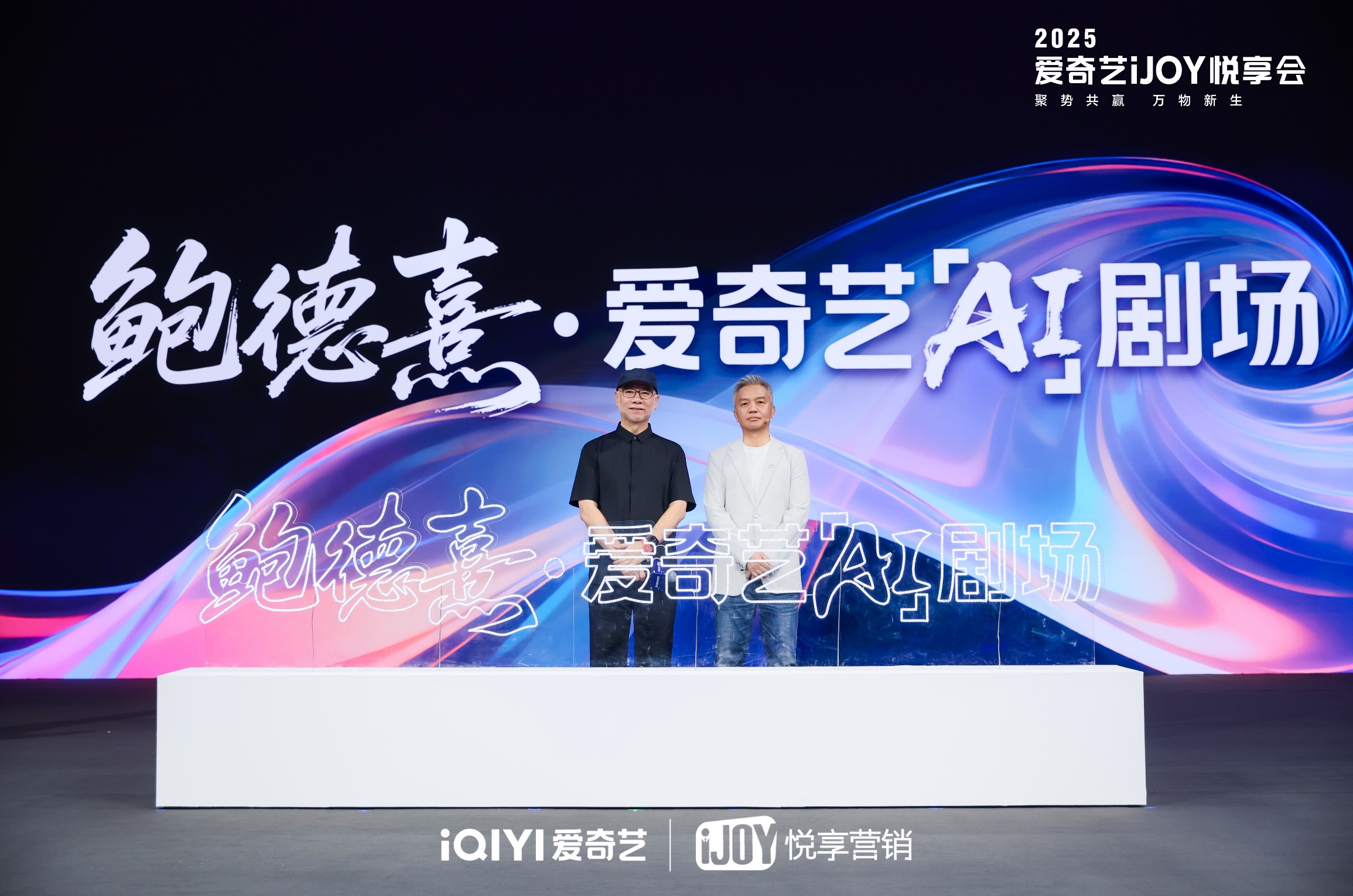 China's iQiyi Leverages Emotional Value to Unlock Business Potential Beyond Screens
China's iQiyi Leverages Emotional Value to Unlock Business Potential Beyond Screens(Yicai) Sept. 26 -- Against the backdrop of increased competition in the Chinese video streaming industry, iQiyi has made strategic moves to transform the emotional value of its content into tangible commercial success through an expansion of its offline experience business.
"IQiyi's mission has remained providing users with emotional value, both via online and offline experiences," founder and Chief Executive Officer Gong Yu said at the iJoy conference yesterday.
While the company's core business for 15 years has been producing and streaming online film and television content, the offline experience business will become "one of iQiyi's core businesses in the future, focusing on intellectual property derivatives and theme parks,” Gong noted.
The shift is already bearing fruit. IQiyi's self-operated collectible trading card business generated over CNY100 million (USD14.1 million) in gross merchandise value in the first half of the year, according to the company's semiannual earnings report. The total GMV of direct merchandise sales and co-branded products exceeded CNY200 million.
IQiyi is aggressively developing its iQiyi Land innovative theme parks, aiming to focus on small spaces and use smart technologies to create a similar or better experience than industry giants, but without large investments.
Shanghai Disneyland Resort and Universal Studios invest around CNY50 billion (USD7 billion), Gong said, adding that it is unrealistic for iQiyi to raise that kind of money.
"Just as we did 15 years ago with online videos, we have to rely on technology to lower investment and reduce the physical space needed for users to create and enjoy the emotional value," Gong explained.
By integrating virtual reality, augmented reality, and artificial intelligence with sound and light effects, iQiyi aims to deliver an equally, or even more stimulating experience in a smaller footprint. "This business model allows us to compete by misalignment with top-tier theme parks," Gong noted.
There are two iQiyi Lands under construction in Yangzhou and Kaifeng, with a third in Beijing announced. Gong expects the Yangzhou one to be ready for opening by the end of this year if progress remains smooth.
In addition to comprehensive theme parks, iQiyi is also deploying its IPs through a lighter asset model. The company operates over 50 immersive theaters across 30 Chinese cities.
This model mirrors the cinema business, with iQiyi investing in content, technology, and operations, and local partners handling fixed assets, including land, construction, and equipment. Revenue mainly comes from ticket sales and secondary consumption, including dining.

AI as Disruptive Force
IQiyi is prioritizing its new offline revenue source. However, it still remains heavily reliant on technologies. Gong, who holds a doctorate in computer science, said he keeps a high-alert stance on AI's disruptive potential for the content world.
"The moment for AI to completely disrupt both long- and short-videos is rapidly approaching," Gong noted, adding that he believes the pace of change is too fast.
In a highly optimistic scenario, AI-assisted commercial feature films may appear as early as the end of this year, with a significant shift coming next year or the year after, Gong predicted.
On Sept. 10, iQiyi launched the Peter Pau x iQiyi AI Theater Storytelling Lab, an AI short film creation competition, in cooperation with Academy Award-winning cinematographer and director Peter Pau.
The initiative aims to cultivate a new generation of professional creators skilled in AI-powered filmmaking, further strengthening iQiyi's leadership in advancing future storytelling.
The AI Storytelling Lab invites submissions to produce AI-driven films that are at least 15 minutes long. Participating creators will be eligible for a 30 percent share of net profits.
Editor: Futura Costaglione